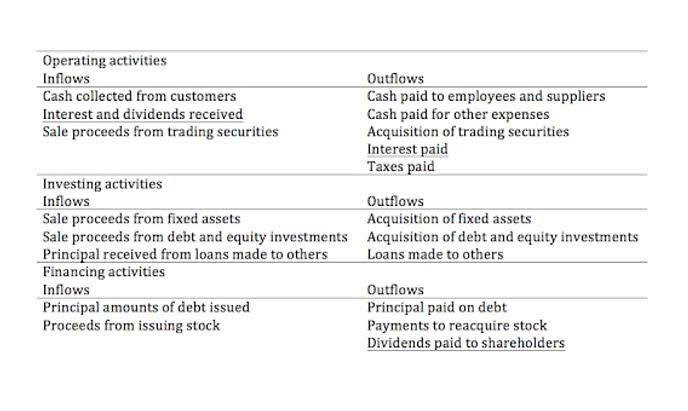How Much Are Taxes for a Small Business? Bench Accounting

If you’re filing a tax return for your small business, we’ve got you covered. Business taxes can include complex rules and significant penalties for errors, so it’s important to get corporate taxes right the first time around. Use the LLC tax calculator below to find out what your company will owe this tax year.

C)Reasonable Wages Paid To Owner
Our small business tax calculator uses the figures you provide to estimate your taxes. Your https://shop.rkc.scnct.io/what-is-a-statement-of-shareholder-equity/ expenses are subtracted from your revenue and then the correct tax rate is applied to find an estimate of what your refund or liability may be. We even account for any estimated tax payments that you might’ve made throughout the year. Partnerships pass income and losses to partners, who report them on individual tax returns.
Companies are required to pay
Just remember, our tax calculator is just for educational purposes, so it’s always a wise move to consult a certified accountant with your data. For pass-through entities—such as sole proprietorships, partnerships, and S corporations—tax liability is determined by individual tax brackets. In 2024, individual rates range from 10% to 37%, with the highest rate applying to taxable income exceeding $609,350 for single filers and $731,200 for married couples filing jointly.
Estimating Tax Liability

Shareholders also pay taxes on dividends, leading to potential double taxation. S corporations pass income to shareholders, avoiding corporate tax but requiring compliance with IRS rules, such as a 100-shareholder limit and restrictions on ownership types. Knowing the structure of your small business is step number one when it comes to calculating your business taxes because your business structure determines your tax rate. Your business property tax rate is based on the value of your business’s land or real estate. Your local tax department determines the value of your business property and the amount of annual property taxes you must pay. As a business owner, you’re responsible for paying certain business-related taxes.
Find out if you’re eligible for small-business tax credits
This means that the taxable income is taxed up to 12%, since it falls under the top threshold of $48,475 for that bracket. Some common above-the-line deductions include contributions to traditional IRAs and HSAs, student loan interest (up to $2,500), half of self-employment tax, educator expenses and tuition and fees for qualified education. Remember, it is important to gather all relevant income documents, including W-2s, 1099s and brokerage statements, to ensure no income is missed when calculating gross income. Enter either the actual expenses or the standard mileage for your car’s business purposes. To calculate actual expenses, figure out what percentage of your car you used for business purposes.

Services and pricing may vary by state, and are subject to application and underwriting requirements. Log in to complete your application or contact one of our licensed insurance professionals for advice on your specific business insurance needs. If an expense affects the entire home, like wifi costs and home insurance, only a portion of that expense is tax-deductible.
Planning for Pass-Through Income

Each state calls this tax something different, but it’s typically something like “franchise tax” or “business entity tax.” State unemployment tax is paid by the employer, not by the employee. The only exceptions are Alaska, New Jersey, and Pennsylvania, where employees are required to contribute to SUTA alongside their employers. Common deductible expenses include rent, employee wages, meals, depreciation, advertising, business mileage, office income statement supplies, and startup costs. As mentioned at the beginning of the article, sales and use taxes are common, and most states require you to collect sales taxes from customers who purchase taxable services and goods. Here are the main types of taxes your business may be responsible for filing, along with when each is due.
Some small business owners pay business income taxes on their personal tax returns, while others file separate business tax returns based on their company’s net earnings. Small business owners are typically required to pay estimated taxes quarterly to avoid penalties. These payments cover income taxes as well as self-employment taxes and assist in managing tax obligations effectively. Your estimated taxes will depend on your personal tax situation, so you’ll have to include personal income, deductions, credits, exemptions, and any withholding of federal income taxes by an employer.
- If you have employees, you must also pay different federal, state, and local payroll taxes.
- Each state calls this tax something different, but it’s typically something like “franchise tax” or “business entity tax.”
- Wear and Tear or depreciation is the decrease in value of an asset.
- This business duty can become tasking to complete manually and is easier to accomplish with professional help.
- This necessitates periodic quarterly payments throughout the year to meet tax obligations.
- For that reason, it’s a good idea to work with a tax professional who is familiar with the regulations in your state.
These exact dates can change by a day or two in any given year because taxes become due the next business date when the original dates fall on weekends or holidays. This article includes details on specific business tax due dates for the current tax year. Federal excise taxes get collected for sales of things like fuel, tires, tobacco, indoor tanning, how to calculate business taxes and a handful of other assorted goods and services.
